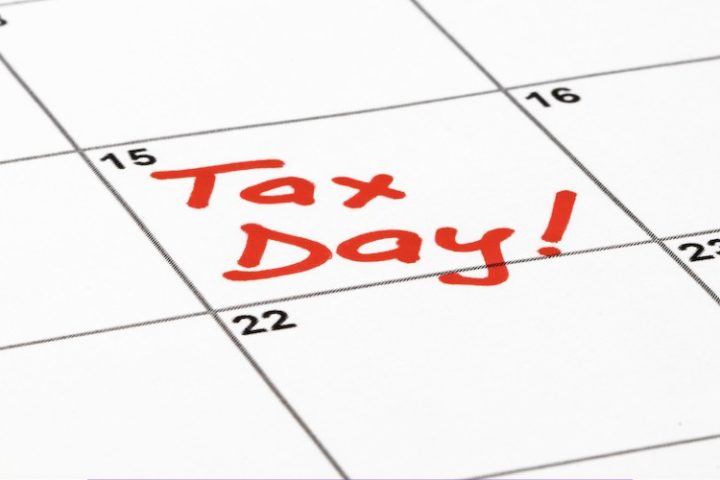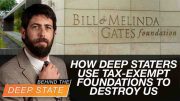
Multiple staff members of the New York Times appear to have confessed to a major felony in their dramatic but largely unimpressive report on President Trump’s taxes.
In purporting to disclose what Trump paid, the newspaper’s reporters admit they had access to thousands of tax records, and they even obtained personnel records of Trump’s employees.
Disclosing tax returns is a crime for federal and state employees and tax preparers. And in receiving and publishing such information, the Times reporters and their superiors might have invited felony or misdemeanor charges.
The Report
The Times, which strongly suggested Trump broke the law, did not explain how it obtained Trump’s tax records.
But the newspaper did admit that it had them, and a lot of them:
The Times examined and analyzed the data from thousands of individual and business tax returns for 2000 through 2017, along with additional tax information from other years. The trove included years of employee compensation information and records of cash payments between the president and his businesses, as well as information about ongoing federal audits of his taxes. This article also draws upon dozens of interviews and previously unreported material from other sources, both public and confidential.
Though the Times also claimed its information was “provided by sources with legal access to it,” such access is not “legal authority” to release it.
The Times also confessed past violations of the same law:
While most of the tax data has not previously been made public, the Times was able to verify portions of it by comparing it with publicly available information and confidential records previously obtained by The Times….
Fragments of Mr. Trump’s tax returns have leaked out before.
Transcripts of his main federal tax form, the 1040, from 1985 to 1994, were obtained by The Times in 2019.
The Law
Federal law on the release of any American’s tax returns is clear. It is forbidden.
“No officer or employee of the United States … no officer or employee of any State, any local law enforcement agency … any local child support enforcement agency, or any local agency … who has or had access to returns or return information,” and “no other person (or officer or employee thereof) who has or had access to returns or return information … shall disclose any return or return information obtained by him in any manner in connection with his service as such an officer or an employee or otherwise or under the provisions of this section.”
The penalty for disclosing tax returns, a felony, is harsh: a $5,000 fine and five years in prison.
For tax preparers, releasing a tax return is a misdemeanor.
But that only covers the person or persons who released the information. Times staffers also committed multiple felonies that carry the same punishment:
It shall be unlawful for any person to whom any return or return information (as defined in section 6103(b)) is disclosed in a manner unauthorized by this title thereafter willfully to print or publish in any manner not provided by law any such return or return information. Any violation of this paragraph shall be a felony punishable by a fine in any amount not exceeding $5,000, or imprisonment of not more than 5 years, or both, together with the costs of prosecution.
As well, federal law might just view the Times crew as principals in the crimes because “whoever commits an offense against the United States or aids, abets, counsels, commands, induces or procures its commission,” and “whoever willfully causes an act to be done which if directly performed by him or another would be an offense against the United States, is punishable as a principal.”
Last, aiding and abetting is another possible crime.
Nothing New
All that aside, as the Times itself reported, nothing is new in the disclosure that Trump “avoided” or “danced” around taxes. His accountants did what they are ethically obliged to do. They offered Trump the best tax advice to lower his liability.
Trump admitted four years ago that he paid zero income tax for a few years. That does not mean he paid “no taxes.”
And as former tax accountant Larry Correia colorfully explained at MonsterHuntNation, Trump’s paying zero income tax is hardly a surprise because “an accountant’s sacred duty [is] to take advantage of all the stupid laws congress has passed to save their client’s money.”
The tax code is unfair, the accountant-turned-best-selling-author wrote, because its complexity requires great wealth to hire accountants who know enough to understand and exploit the tax laws for clients.
Trump has that wealth:
I bet he’s got a room full of accountants, and their leader is probably a grizzled old CPA with an eye patch and a raven who sits on his shoulder. The raven also has an eye patch and an accounting degree. This man has wrestled bears, and he’s going to take advantage of every tax break in the US Code for his client, and do so gleefully, knowing that many of those laws were signed by Barack Obama and Bill Clinton.
On the other side … the IRS has sent their most fearsome auditor against him. This man sold his soul to the devil, and then fined the devil for failing to list that soul as a depreciable asset. When he shows up to audit your company, he appears a flash of fire and brimstone, as a Finnish death metal band plays his theme song. He is an auditor bereft of mercy, compassion, or pity, and beneath his leathery wings serve a legion of IRS goblins, who will crawl into every nook and cranny of the Trump Corporation’s P&L looking for errors, and if a mouse so much as s**ts a turd large enough to unbalance that ledger, there will be hell to pay.
Is it unfair that rich guys can employ Gandalf level CPAs and take advantage of more complicated tax laws, while regular people use TurboTax? Yep. But in the meantime, as long as those tax laws are there, the rich guys would be utter fools not to take advantage of them.
H/T: Powerline



